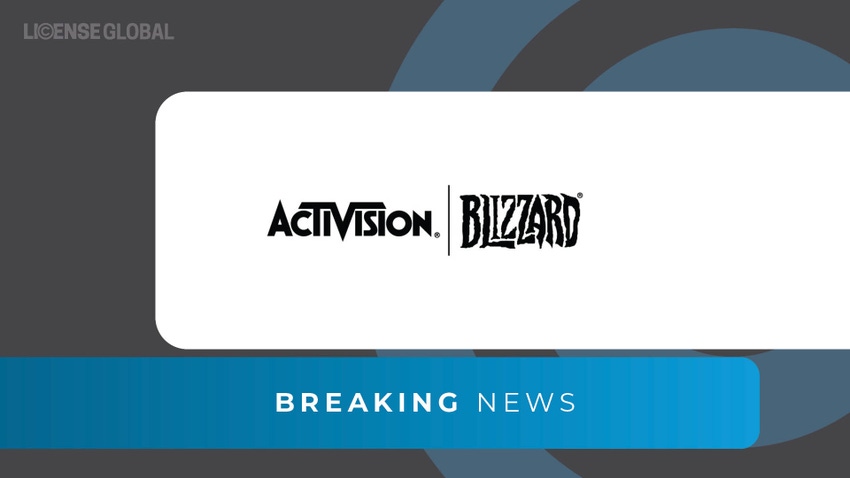The U.K. Government will move to block Microsoft’s $68.7 billion acquisition of Activision Blizzard.

BBC News has today reported that the U.K. Competitions and Markets Authority (CMA) will move to block Microsoft’s acquisition of Activision Blizzard, owners of “Call of Duty,” “Candy Crush,” “World of Warcraft” and “Overwatch.”
Based on the reasoning that the acquisition would impact the cloud gaming market by reducing innovation and leaving players with less choice, Activision Blizzard chief executive officer, Bobby Kotick, released a statement to his team saying the block is “far from the final word on this deal.”
“Alongside Microsoft, we can and will contest this decision, and we’ve already begun the work to appeal to the U.K. Competition Appeals Tribunal,” says Kotick. “We’re confident in our case because the facts are on our side; this deal is good for competition.”
A statement from the CMA says, "The final decision to prevent the deal comes after Microsoft’s proposed solution failed to effectively address the concerns in the cloud gaming sector, outlined in the Competition and Markets Authority’s (CMA) provisional findings published in February.
"Microsoft entered into a $68.7 billion deal to buy Activision, one of the most-popular video games publishers in the world, in January 2022. The CMA launched an in-depth review of the deal in September 2022, and in February 2023 provisionally found that the merger could make Microsoft even stronger in cloud gaming, stifling competition in this growing market."
Mergers are, by nature, a complex process, but the move to block from the U.K. could jeopardize the acquisition as one of three markets that must clear the merger before it takes place, with European Union and the United States having yet to clear the deal or release a statement.
License Global will explore how this impacts the brand and licensing landscape as and when more details on the story emerge.
The Age of the Console Exclusive
The CMA's move to block the acquisition raises questions surrounding the former gaming landscape of "the exclusive." A title that was once only playable through a particular platform, such as "The Last of Us" or "God of War" on PlayStation, or "Halo" on Xbox and "Mario Kart" on Nintendo.
While these titles fueled the ongoing rise of the console age, they split gamers into communities based on access to intellectual property and unique gameplay experiences. However, as these exclusives defined the experience of each brand in the console era, the cross-platform game rose to power across all player bases.
One particularly pertinent title is Activision Blizzard's "Call of Duty." First launching on PlayStation, Xbox and PC with no exclusive, players could universally share their experiences of the game's storylines and multiplayer modes.
As each title in the franchise built on both brand and experience, "Call of Duty" quickly became the most-played first-person shooter (FPS) on the planet, and when "Call of Duty: Modern Warfare" introduced cross-platform multiplayer, meaning that all points of access could converge in one online battlefield, the game was changed in a, quite literally, internet-breaking fashion.
Then came the age of acquisition in the entertainment space, which seemingly placed intellectual property at the heart of business strategy, and gaming was no exception. The acquisition in question, however, set fans of the title on edge as the most-popular first-person shooter in the world looked set to become an "exclusive."
However, in March, Xbox chief executive officer Phil Spencer was quoted numerous times across numerous sources, stating the title would not be made exclusive. So, if Xbox is putting players first with "Call of Duty," why the move to block?
The Cloud Gaming Market
According to a statement from the CMA, "the deal would reinforce Microsoft's advantage in the market by giving it control over important gaming content such as 'Call of Duty,' 'Overwatch,' and 'World of Warcraft.' The evidence available to the CMA indicates that, absent the merger, Activision would start providing games via cloud platforms in the foreseeable future."
The position of the CMA, then, means regardless of console the cloud gaming market (meaning the access to gaming titles without the need for consoles) would place Microsoft in a much more powerful position.
The U.K. cloud gaming market has a player base tripling from 2021 to 2022 and is forecast to be worth up to £11 billion ($13.7 billion) globally and £1 billion ($1.2 billion) in the U.K. alone by 2026. So, the ownership of concentrated intellectual property raises concerns about an impact on online gaming, competitive gaming, and consumer products.
While the experience for gamers may stand, without a console, the intellectual property owner would nonetheless hold the cards. Therefore, raising concerns with the U.K. Government and placing further hurdles in the most-significant entertainment acquisition of recent times.
How do you see this impacting the wider gaming space? Let us know by contacting Ben Roberts, EMEA content director, License Global at [email protected].
Read more about:
Activision BlizzardActivisionmicrosoftLicense Global OriginalCall of DutyCandy CrushOverwatchWorld of WarcraftGlobalU.K.About the Author(s)
You May Also Like








